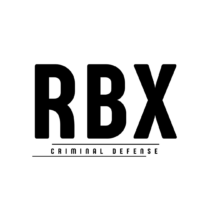California law allows a defendant to ask the court to end probation early. Although a defendant may request early termination anytime after probation starts, it is more likely to be granted after the halfway point of the probation period. Further, a defendant can ask that their probation be terminated under the recent enacted AB1950, which limits probation to one year on most misdemeanors.
How to End Probation Early under Penal Code 1203.3
The first step is to file a motion requesting early termination of probation. The motion must include a declaration or affidavit setting out the facts that support the request. The court clerk will set a hearing date and provide notice to the defendant and the prosecutor. At that court date, the judge will listen to oral argument from both parties and will rule on the motion. The prosecutor might file an opposition prior to the hearing date – in which case they should serve a copy on the defendant.
Legal Standard
In order to end probation early, someone (typically the defendant) must demonstrate defendant’s good conduct and reform. In addition, the court must find that terminating probation will serve “the ends of justice.”
Good Conduct and Reform
The first part of good conduct and reform is the absence from criminal activity or accusation of crime. A defendant who has committed new crimes is unlikely to be granted early termination. To the contrary, they could face new charges and a probation violation.
The second part of good conduct is participation in non-criminal activities. These could include employment, attending school, raising or caring for family members, and any other positive contributions to the community.
Good conduct and reform includes rehabilitative efforts such as classes, therapy, or AA meetings. It also includes changes in behavior and attitude that lead away from crime and toward being a productive citizen.
Restitution, Fines and Court Fees
The court has the discretion (choice) to terminate probation even if the defendant has not finished paying restitution, fines, or fees. (See People v. Holman.) To court is more likely to grant early termination of probation where the defendant has made an effort to pay. (See People v. Chandler.)
Early termination of probation does not automatically eliminate fines or restitution. However, once probation is terminated (successfully), the defendant is entitled to, and should request, dismissal under Penal Code section 1203.4(a)(1). Once the case is dismissed, the defendant is no longer obligation to pay criminal restitution, fines or fees. (Chandler.)
The Ends of Justice
The judge has a lot of flexibility in determining what serves the ends of justice. By terminating probation early, a court expresses its belief that a defendant should be relieved from the restrictions of probation.
The judge’s ruling will not be overturned unless their order was arbitrary, capricious, or patently absurd.
Unwritten Rule – Serve Half of Probation
It is possible, but highly unlikely to end probation shortly after it begins. This is because it takes time for the defendant to demonstrate the “good conduct and reform” sufficient to show that termination of probation is “serves the ends of justice.”
But exactly how much time?
Many prosecutors and courts use the half-way mark as an unwritten rule regarding when probation can be terminated. After the half-way point, prosecutors are less likely to argue against early termination, and judges are more likely to grant termination even when the prosecutor opposes. If you are near the half-way mark of probation, and are not in a hurry to end probation, waiting could make your motion more likely to succeed.
End Probation Early under Penal Code 1203a (AB 1950)
Assembly Bill 1950, codified as Penal Code 1203a, and effective as of January 1, 2021, limits probation for misdemeanors to one year, unless the offense includes a specific probation length. (Penal Code section 1203a(b).) Penal Code section 1203a should apply retroactively if the defendant is still on probation. (See In re Estrada and People v. McKenzie.)
RBX Law is here to help you end probation.

